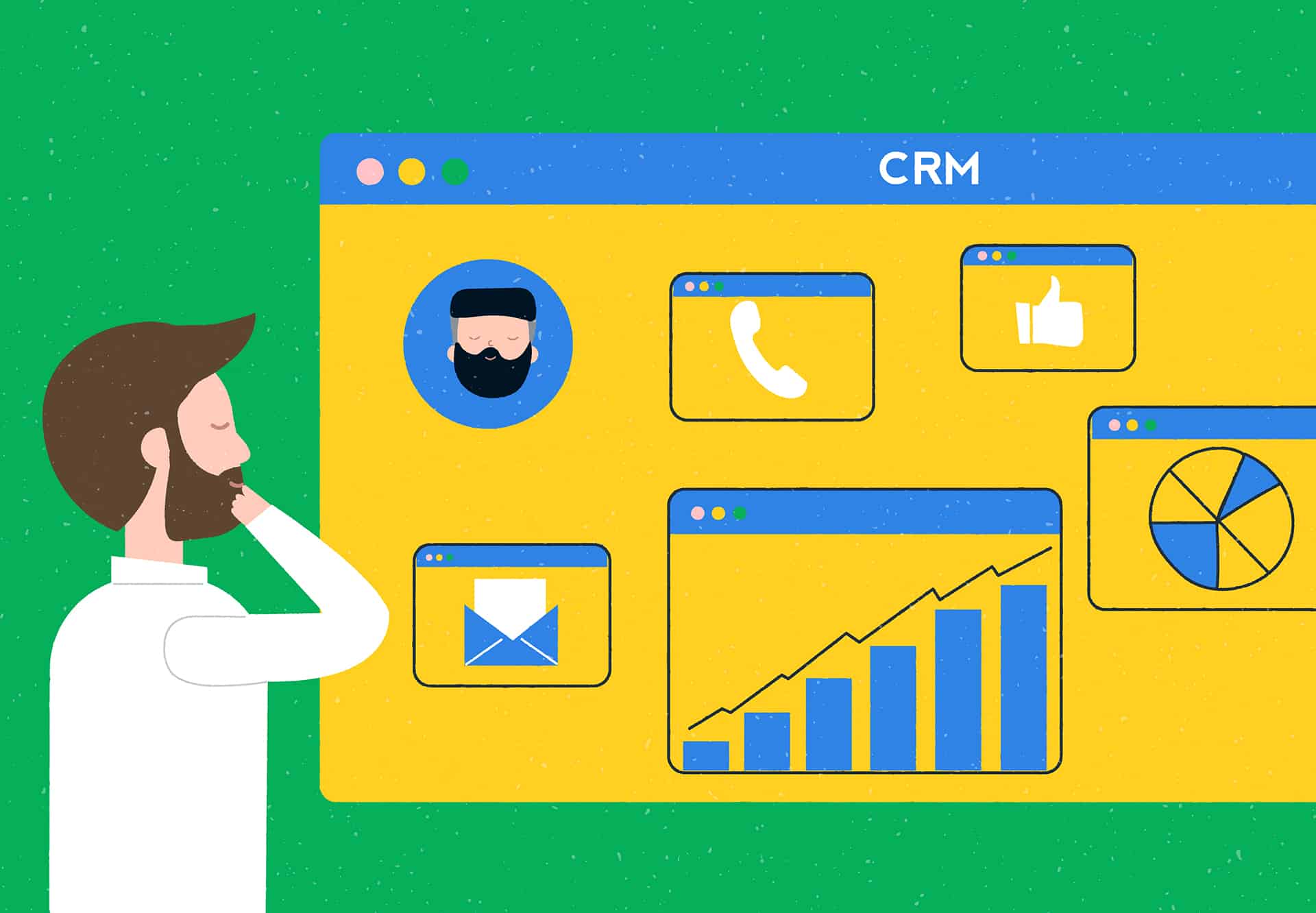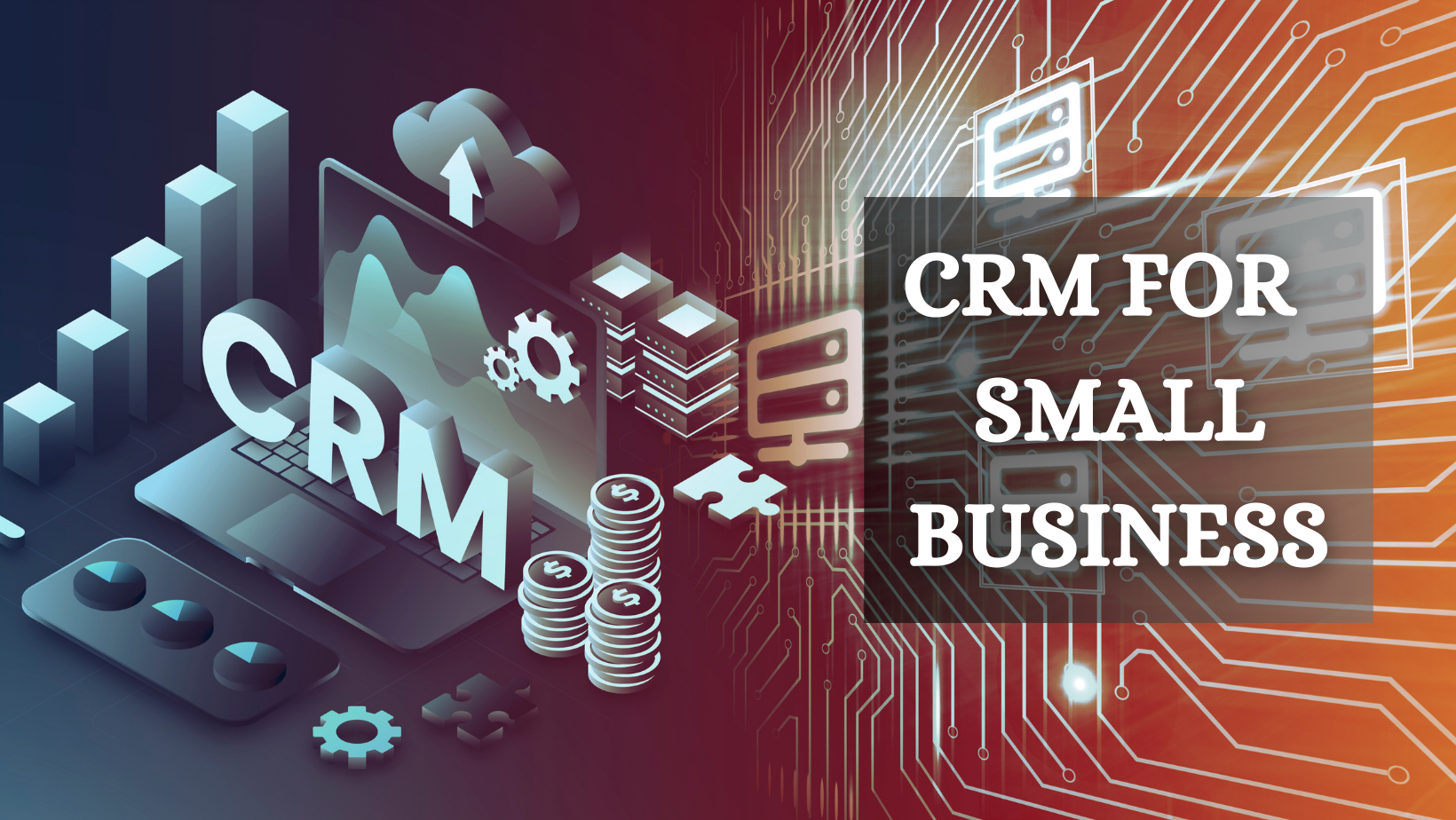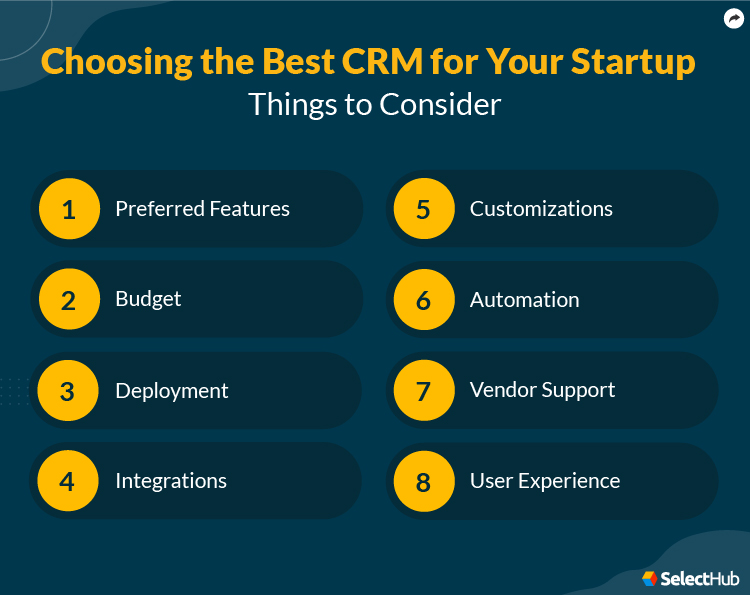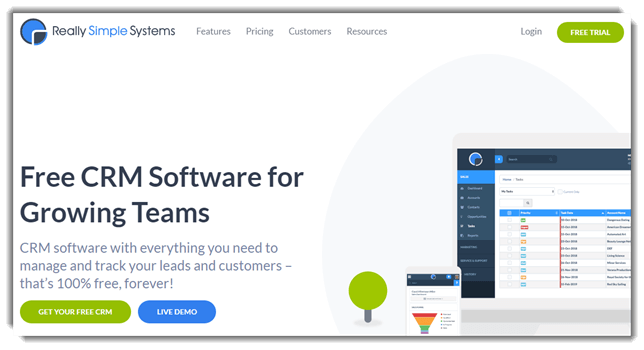Simplify Your Small Business: The Ultimate Guide to Easy CRM Solutions
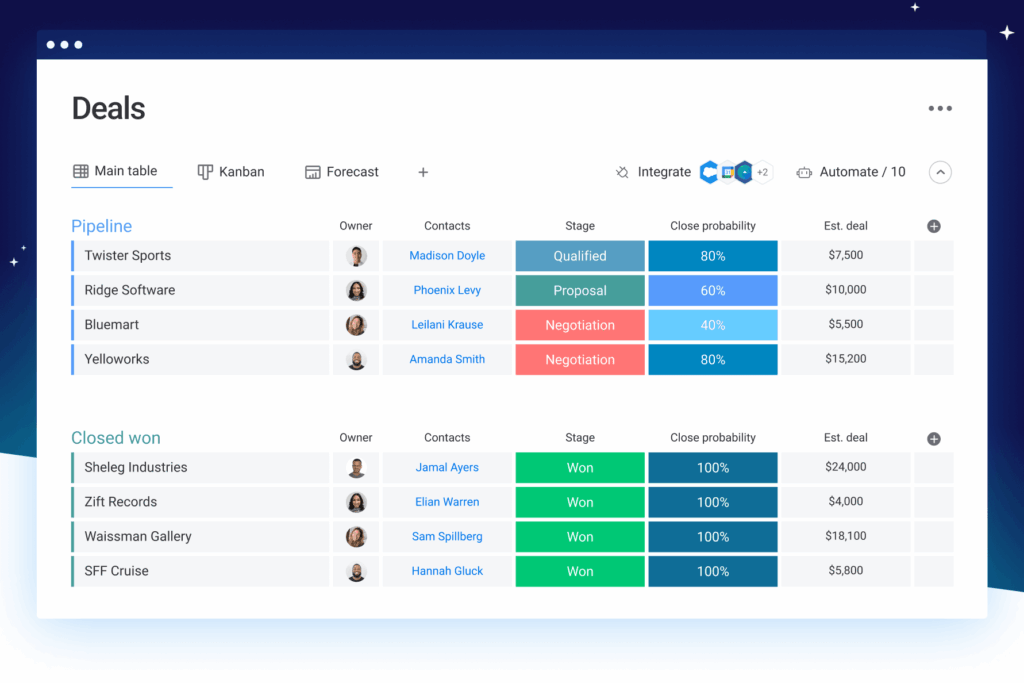
Introduction: Why Your Small Business Needs a CRM
Running a small business is a whirlwind. You’re juggling a million things: product development, marketing, sales, customer service, and the list goes on. In the midst of this chaos, it’s easy for important details to slip through the cracks. That’s where a Customer Relationship Management (CRM) system steps in. Think of it as your central hub for all things customer-related.
But let’s be honest, the term ‘CRM’ can sound intimidating. Images of complex software, endless training sessions, and frustrating implementation processes might come to mind. The good news? It doesn’t have to be that way. This guide will walk you through the world of easy CRM solutions specifically designed for small businesses. We’ll explore why you need one, what to look for, and how to choose the perfect CRM to streamline your operations and boost your bottom line.
The Core Benefits of a CRM for Small Businesses
Before diving into specifics, let’s understand the fundamental advantages a CRM offers. Investing in a CRM isn’t just about fancy software; it’s about building stronger customer relationships and driving sustainable growth.
- Improved Customer Relationships: A CRM provides a 360-degree view of each customer. You can see their purchase history, communication logs, and preferences all in one place. This allows you to personalize interactions, anticipate their needs, and provide exceptional service.
- Increased Sales: By tracking leads, managing the sales pipeline, and automating follow-ups, a CRM helps you close more deals. You can identify high-potential leads, nurture them effectively, and ensure no opportunity falls through the cracks.
- Enhanced Efficiency: Automate repetitive tasks like data entry, email sending, and appointment scheduling. This frees up your time to focus on core business activities, such as strategizing and innovation.
- Better Organization: Say goodbye to scattered spreadsheets and lost contact information. A CRM centralizes all customer data, making it easy to find what you need, when you need it.
- Data-Driven Decision Making: CRM systems provide valuable insights into your customer behavior, sales performance, and marketing effectiveness. This data empowers you to make informed decisions and optimize your strategies.
In essence, a CRM transforms your customer interactions from a series of isolated events into a cohesive, data-driven strategy. This translates into happier customers, increased sales, and a more efficient business.
Key Features to Look for in an Easy CRM
When searching for an easy CRM, focus on features that are user-friendly, intuitive, and tailored to the needs of small businesses. Avoid complex systems that require extensive training or IT support. Here are some essential features to prioritize:
Contact Management
At its core, a CRM is about managing contacts. Look for a system that allows you to easily:
- Import and organize contact information
- Segment contacts based on various criteria (e.g., demographics, purchase history, lead source)
- Store detailed information about each contact, including notes, interactions, and preferences
- Search and filter contacts quickly
Lead Management
A good CRM will help you manage your leads effectively. Key lead management features include:
- Lead capture forms to collect information from your website or landing pages
- Lead scoring to identify high-potential leads
- Lead tracking to monitor the progress of each lead through the sales pipeline
- Lead nurturing campaigns to engage and qualify leads
Sales Pipeline Management
Visualize and manage your sales process with a clear sales pipeline. Essential features include:
- Drag-and-drop interface to easily move deals through different stages
- Customizable sales stages to match your sales process
- Deal tracking to monitor the value and progress of each deal
- Sales reporting to analyze sales performance and identify areas for improvement
Email Marketing Integration
Seamless integration with your email marketing platform is crucial. Look for a CRM that allows you to:
- Send targeted email campaigns to specific customer segments
- Track email open rates, click-through rates, and conversions
- Automate email follow-ups based on customer behavior
- Personalize email communications to improve engagement
Reporting and Analytics
Gain valuable insights into your business performance with comprehensive reporting and analytics. Key features include:
- Sales reports to track revenue, sales volume, and conversion rates
- Customer reports to analyze customer behavior and identify trends
- Marketing reports to measure the effectiveness of your marketing campaigns
- Customizable dashboards to display key performance indicators (KPIs)
Automation
Automate repetitive tasks to save time and improve efficiency. Look for features like:
- Automated email follow-ups
- Task reminders and notifications
- Workflow automation to streamline sales and marketing processes
- Automated lead assignment
Mobile Accessibility
In today’s fast-paced world, mobile access is essential. Choose a CRM that offers a mobile app or a responsive web interface, allowing you to access your data and manage your business on the go.
Integration with Other Tools
Integrate your CRM with other tools you use, such as:
- Email providers (Gmail, Outlook, etc.)
- Accounting software (QuickBooks, Xero, etc.)
- Project management tools (Asana, Trello, etc.)
- Social media platforms
Top Easy CRM Solutions for Small Businesses
Now, let’s explore some of the best easy CRM solutions for small businesses. The ‘best’ CRM will depend on your specific needs and budget, but these options are known for their user-friendliness and affordability.
1. HubSpot CRM
Best for: Businesses looking for a free, all-in-one CRM with robust features.
HubSpot CRM is a popular choice, especially for small businesses just starting out. It offers a free version with a generous set of features, including contact management, deal tracking, email marketing, and basic reporting. The interface is clean and intuitive, making it easy to learn and use. HubSpot also provides excellent educational resources and support.
Pros:
- Free plan with powerful features
- User-friendly interface
- Excellent integrations with other HubSpot tools and third-party apps
- Comprehensive marketing and sales automation features
- Extensive educational resources and support
Cons:
- The free plan has limitations on storage and usage
- Advanced features require paid upgrades
- Can be overwhelming for very small businesses with simple needs
2. Zoho CRM
Best for: Businesses seeking a feature-rich, customizable CRM at an affordable price.
Zoho CRM offers a wide range of features at a competitive price point. It’s highly customizable, allowing you to tailor the system to your specific business needs. Zoho also provides a free plan for up to three users and offers a variety of integrations with other Zoho apps and third-party tools.
Pros:
- Affordable pricing plans
- Highly customizable
- Extensive feature set
- Good integrations with other Zoho apps and third-party tools
- Free plan for up to three users
Cons:
- Can have a steeper learning curve than some other options
- Interface can feel cluttered at times
- Customer support can be slow to respond
3. Freshsales
Best for: Sales-focused businesses looking for a CRM with advanced sales automation features.
Freshsales (formerly Freshworks CRM) is designed with sales teams in mind. It focuses on sales automation, lead management, and pipeline management. It offers a clean and intuitive interface, making it easy for sales reps to manage their deals and track their progress. Freshsales also integrates with other Freshworks products, such as Freshdesk for customer support.
Pros:
- Intuitive interface
- Strong sales automation features
- Good integrations with other Freshworks products
- Affordable pricing plans
- Excellent customer support
Cons:
- Less focus on marketing features compared to some other options
- Customization options are somewhat limited
- Can be overkill for businesses with simple needs
4. Pipedrive
Best for: Sales teams that want a visual, pipeline-focused CRM.
Pipedrive is known for its user-friendly interface and visual pipeline management. It’s designed to help sales teams close deals faster. The platform offers a clean and intuitive interface, making it easy to track deals and manage the sales process. Pipedrive also integrates with a variety of tools, including email providers and marketing automation platforms.
Pros:
- Visually appealing and easy-to-use interface
- Strong pipeline management features
- Good integrations with other tools
- Focus on sales productivity
- Affordable pricing plans
Cons:
- Limited marketing automation features
- Customization options are somewhat limited
- Reporting capabilities could be more robust
5. Agile CRM
Best for: Businesses wanting an all-in-one CRM with marketing automation capabilities.
Agile CRM is a comprehensive CRM that offers a range of features, including contact management, sales automation, and marketing automation. It’s a good option for businesses that want a single platform to manage their sales and marketing efforts. Agile CRM offers a free plan for up to 10 users and affordable paid plans.
Pros:
- All-in-one CRM with sales and marketing automation
- Affordable pricing plans
- Good integrations with other tools
- Free plan for up to 10 users
- User-friendly interface
Cons:
- Interface can feel a bit dated
- Customer support can be slow to respond
- Reporting capabilities could be more advanced
Choosing the Right CRM: A Step-by-Step Guide
Selecting the right CRM is a critical decision. Here’s a step-by-step guide to help you choose the perfect solution for your small business:
1. Define Your Needs and Goals
Before you start evaluating CRM systems, take the time to understand your specific needs and goals. Ask yourself:
- What are your current pain points in managing customer relationships?
- What are your sales and marketing objectives?
- What are the key features you need in a CRM?
- What is your budget?
- How many users will need access to the system?
Clearly defining your needs will help you narrow down your options and choose a CRM that aligns with your business objectives.
2. Research and Compare Options
Once you have a clear understanding of your needs, start researching different CRM solutions. Consider the options we discussed above (HubSpot CRM, Zoho CRM, Freshsales, Pipedrive, Agile CRM) and explore other options as well. Compare their features, pricing, and reviews. Look for:
- Ease of use: Is the interface intuitive and easy to navigate?
- Features: Does it offer the features you need?
- Integrations: Does it integrate with your existing tools?
- Pricing: Is it affordable and within your budget?
- Reviews: What are other users saying about the system?
3. Consider Your Budget
CRM pricing varies widely, from free plans to enterprise-level solutions. Determine a realistic budget based on your business size, needs, and financial constraints. Remember to factor in not only the monthly or annual subscription cost but also any potential implementation costs, training expenses, and add-on features you may need.
4. Read Reviews and Seek Recommendations
Don’t rely solely on vendor websites. Read online reviews from other small business owners to get a realistic understanding of each CRM’s strengths and weaknesses. Check out sites like G2, Capterra, and TrustRadius. Ask colleagues, industry peers, or your network for recommendations.
5. Test Drive the CRM
Most CRM providers offer free trials or demos. Take advantage of these opportunities to test drive the system before making a decision. This will allow you to experience the interface, explore the features, and determine if the CRM is a good fit for your business.
6. Consider Implementation and Training
Think about how you will implement the CRM and train your team. Does the provider offer onboarding support, tutorials, or training resources? Consider the time and resources required to set up the system and get your team up to speed.
7. Plan for the Future
Choose a CRM that can grow with your business. Consider the scalability of the system and its ability to accommodate your future needs. Will it be able to handle an increasing number of contacts, users, and data? Does it offer advanced features that you might need in the future?
Implementation and Best Practices for Easy CRM Adoption
Once you’ve chosen your CRM, successful implementation is key. Here are some best practices to ensure a smooth transition and maximize the value of your new system:
1. Plan Your Implementation
Develop a detailed implementation plan that outlines the steps you will take to set up the CRM, import your data, and train your team. This plan should include a timeline, assign responsibilities, and identify any potential challenges.
2. Data Migration
Carefully plan your data migration process. Identify the data you need to import, clean and organize your data, and map your existing data fields to the new CRM fields. Test the data import process before migrating all of your data.
3. Customize Your CRM
Tailor the CRM to your specific business needs. Customize the fields, workflows, and reports to match your sales process and customer interactions. This will ensure that the CRM is aligned with your business objectives and provides the information you need.
4. Train Your Team
Provide comprehensive training to your team on how to use the CRM. Offer training sessions, create user guides, and provide ongoing support. Ensure that everyone understands how to use the system effectively and how it benefits their work.
5. Encourage Adoption
Encourage your team to use the CRM consistently. Communicate the benefits of the system, provide ongoing support, and recognize and reward users who are actively using the CRM. Make sure the CRM becomes an integral part of your team’s daily workflow.
6. Integrate with Other Tools
Integrate your CRM with other tools you use, such as email marketing platforms, accounting software, and project management tools. This will streamline your workflow and ensure that data is synchronized across all of your systems.
7. Monitor and Optimize
Regularly monitor the performance of your CRM and make adjustments as needed. Track key metrics, such as sales conversion rates, customer satisfaction, and lead generation. Identify areas for improvement and optimize the system to maximize its effectiveness.
Conclusion: Embrace the Power of Easy CRM
In the fast-paced world of small business, managing customer relationships effectively is no longer a luxury; it’s a necessity. Easy CRM solutions empower you to streamline your operations, boost sales, and provide exceptional customer service. By choosing the right CRM and implementing it effectively, you can transform your business and achieve sustainable growth.
Don’t let the perceived complexity of CRM hold you back. With the abundance of user-friendly and affordable options available, there’s a perfect CRM solution waiting for your small business. Take the first step today and embark on the journey to stronger customer relationships, increased sales, and a more successful future.

